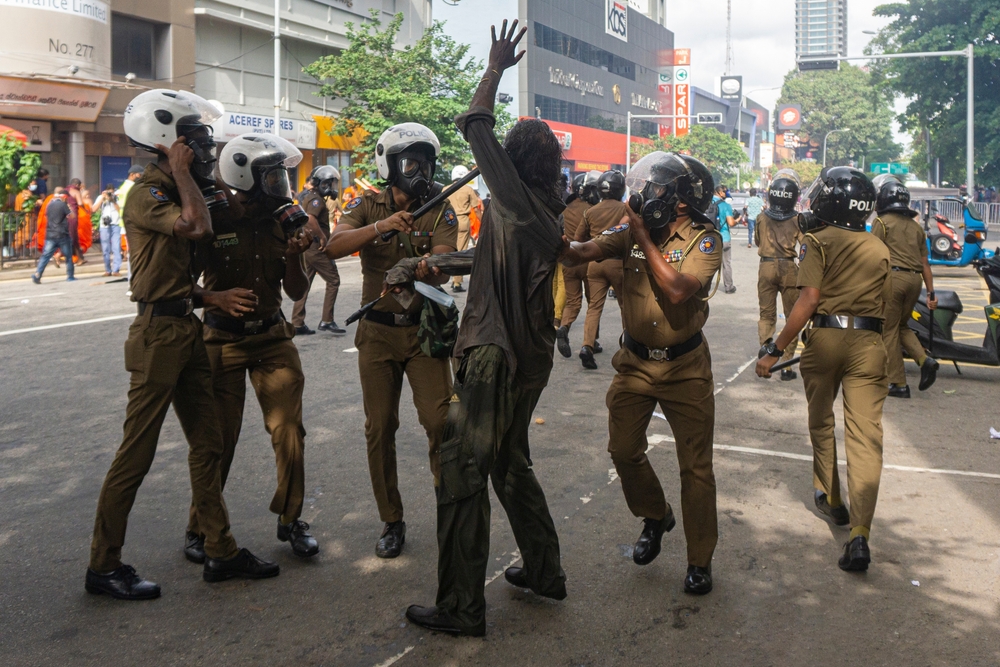
Pic by Isura Nimantha | Credit: Shutterstock
Sri Lanka's acting Inspector General of Police, Priyantha Weerasooriya, has announced that the island's notorious anti-drug crackdown, Operation Yukthiya, will continue 'strongly and better' despite a change in administration.
“The police have always been involved in raids, and the majority of our personnel were part of Yukthiya operations. We have identified shortcomings in other areas due to this operation, and we are working to address them. While Yukthiya was the name given to the operation, we will continue it in the same manner as before," Weerasooriya told reporters in Kandy.
Although the Sri Lankan government claims the operation’s objective is to reduce crime, Operation Yukthiya has faced severe criticism for its heavy-handed tactics, leading to the arrest of over 30,000 individuals. Security forces have carried out raids without search warrants, detaining suspected drug dealers and users, and sending hundreds to military-run rehabilitation centers.
Reports suggest that during and after these operations, numerous human rights violations occurred, including unauthorized searches, arbitrary arrests and detentions, ill-treatment, torture, and even public strip searches. In one disturbing case, a 17-year-old boy was allegedly forced to strip naked on Galle Road for merely carrying a pair of scissors. Lawyers representing those detained have claimed they faced intimidation from police officers.
UN experts, part of the Special Procedures of the Human Rights Council, have criticised the operation, stating, “Drug users have human rights. They deserve to live with dignity, without facing further discrimination and stigmatization. The current climate of severe repression against suspected drug offenders is deeply troubling”.
Operation Yukthiya, announced just a day before its launch on December 17, 2023, was initiated under the directive of then Minister of Public Security Tiran Alles and Acting Inspector General of Police Deshabandu Tennakoon, with support from the Special Task Force (STF) and the Sri Lankan Army. Thousands of suspects were rounded up during nationwide raids for drug possession and involvement in other crimes. Despite calls from both local and international groups to suspend the operation, the previous government proceeded, asserting that the drug crisis and organized crime could be eliminated within months.



